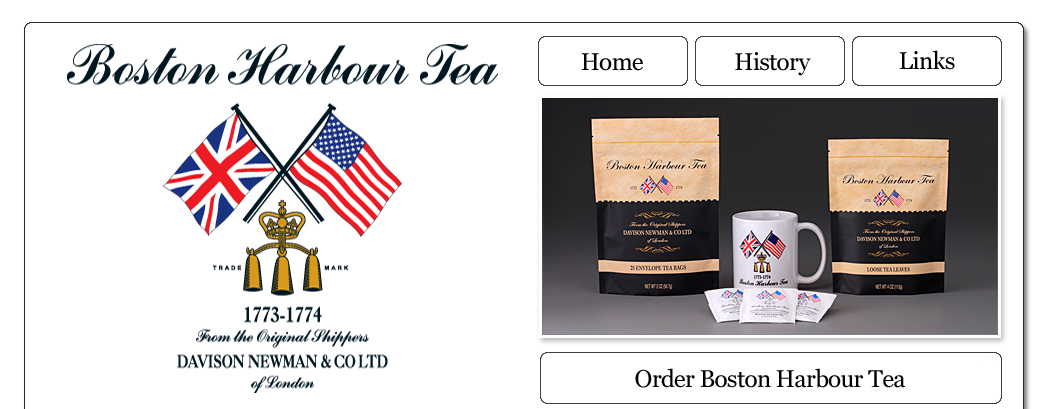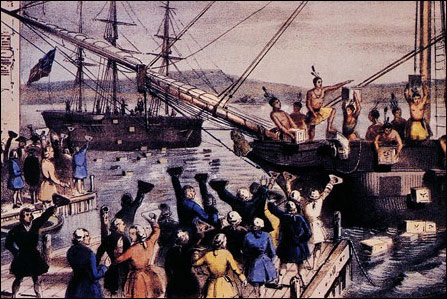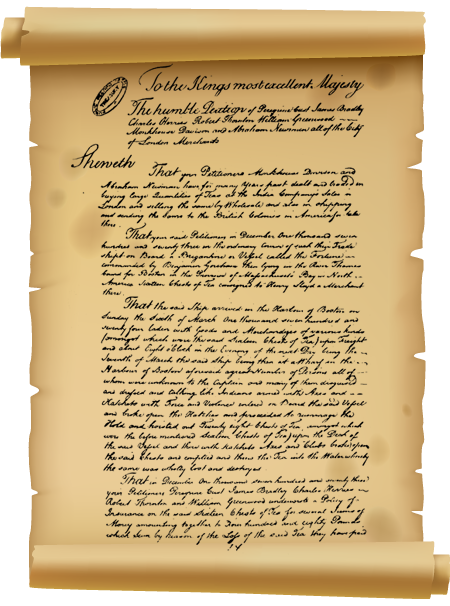
| The History of Boston Harbour Tea & The Boston Tea Parties | ||
| The Boston Tea Party of 1773 | ||
|
As history dictates, a synopsis of the Boston Tea Party seems outwardly straightforward. On December 16, 1773 a group of Colonial patriots disguised as Mohawk Indians boarded three English ships in Boston Harbor and threw the tea onboard into the water, in protest against the duty imposed on tea by the Government of King George III. When the Tea Party was over, hundreds of tea chests were left opened and floating in the frigid waters of Boston Harbor. As the centuries have passed, we have realized that it was much more than that. What is overlooked about this single historical event is its overall importance in shaping our country’s political and social make up. |
 |
|
| The Boston Tea Party was one of many citizen protests in colonial America, but over time, has emerged as the most well know citizen protest of the era. Centuries ago, the taxation of tea in the American Colonies was one of the catalysts that helped spark the American War of Independence. Even though the tax on British controlled tea stocks was not a substantial amount per household, this was one of many taxes that occurred without proper consent over a span of several decades. Cries of “taxation without representation” engulfed the Colonies until there was no peaceful compromise to be realized. What made this event stand out was that it culminated with the first show of British aggression towards the colonists. While previous British taxes were repealed at the first sign of colonial protest, this act was met with British Parliament sending troops to enforce the tax laws. Historians agree that this act provoked Americans to respond with similar aggressions. These hostilities escalated into a larger war that engulfed the colonies, with the Americans proclaiming independence from England. | ||
| How Britain’s Oldest Teamen Got Involved in the Tea Party Uprising | ||
|
After the first Boston Tea Party in 1773, the use of collective citizen power to combat the tyranny of the British government was duplicated throughout the Colonies. In the months that followed, a movement that saw protesters stage their own “Tea Parties” and ultimately destroyed British imported tea in New York, Philadelphia, Charleston, Annapolis, Greenwich, NJ and even a second round in Boston.
|
 In today’s modern era, Britain’s oldest tea merchant has developed this famous tea blend and offers it exclusively through the Mark T. Wendell Tea Company. With several packaging sizes and styles available, this small piece of our country’s history not only makes a great Boston-themed gift idea, but a truly memorable cup of tea. |
|
|
Historical material was sourced from: Tea-Leaves- A Collection of Letters, and Documents Relating to the Shipment of Tea to the American Colonies in the Year 1773, by the East by Francis Samuel Drake, 1884. At The Three Sugar Loaves and Crown by Owen Rutter, 1938 American Tempest: How the Boston Tea Party Sparked a Revolution by Harlow Giles Unger, Da Capo Press, 2011 |
||